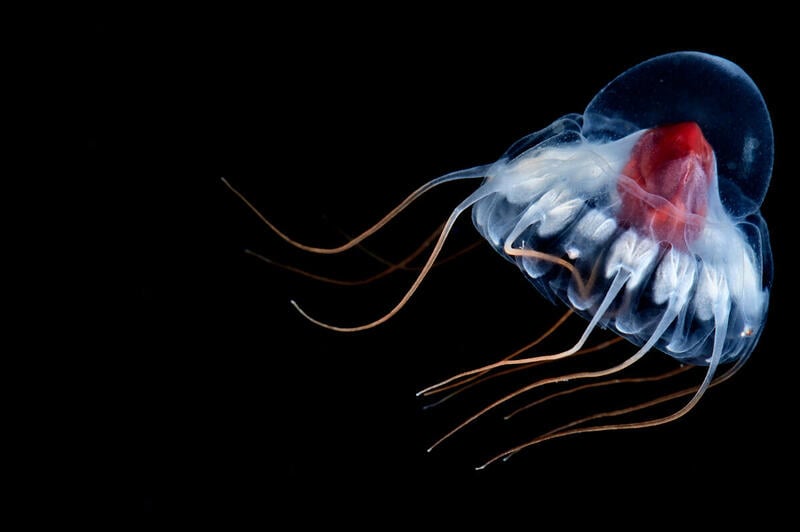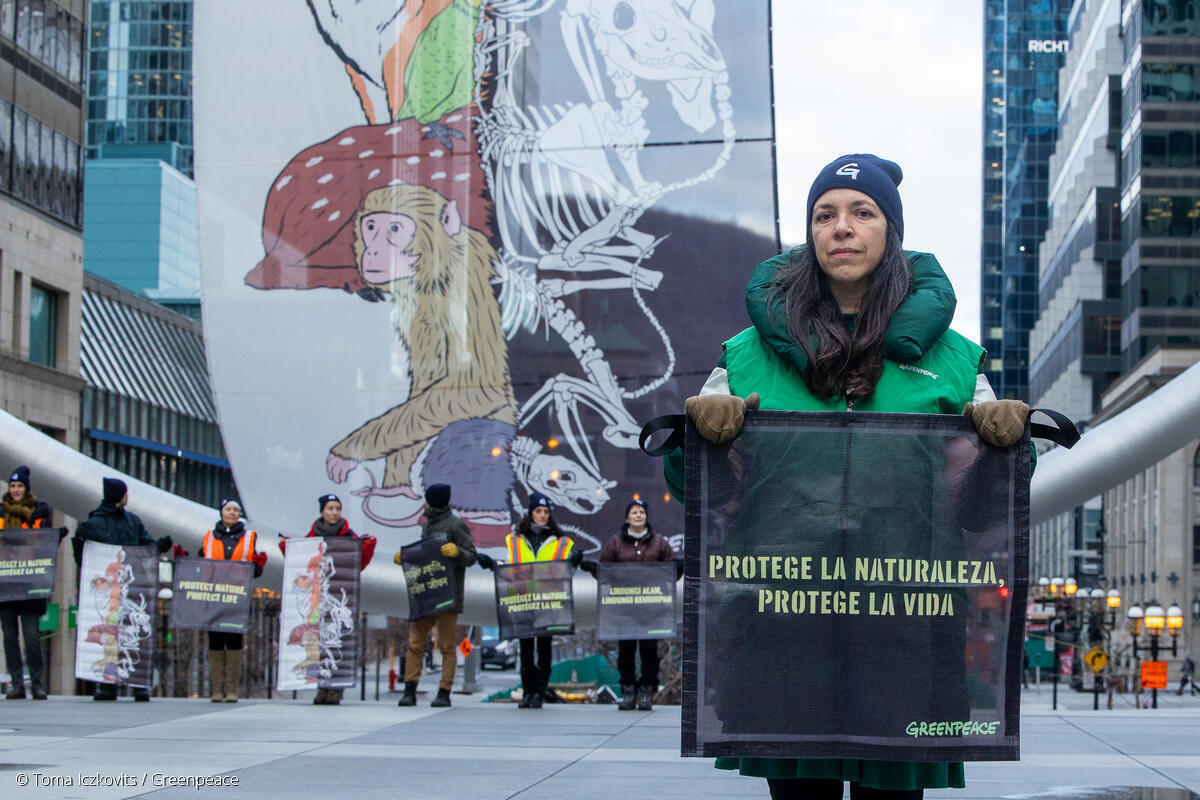MONTREAL – Greenpeace Canada projected two giant videos last night illustrating the harms deep sea mining would cause to highly sensitive marine ecosystems. The display, near the Place des Arts Métro station, comes ahead of global talks that could determine whether the industry will proceed this year, and is part of the organization’s wider calls to the Canadian government to protect the oceans and uphold Indigenous rights by supporting a moratorium on deep sea mining.
The projection comes a month after Greenpeace activists installed a giant glowing deep sea octopus in Ottawa near the federal global affairs building urging Minister Joly to protect its home.
“We’re here to bring what’s at stake in the depths of the ocean to the surface for everyone to see,” said Sarah King, head of Greenpeace Canada’s Oceans and Plastics campaign. “More than a dozen states have announced they don’t support deep sea mining proceeding, but Canada’s international position remains unclear despite having declared an effective moratorium in national waters.”
The International Seabed Authority (ISA) — the body that regulates seabed activities and whose 36-member Council Canada sits on — is set to meet in the coming weeks, from July 10th to 28th, to determine whether the industry will begin in international waters. Foreign Affairs Minister Mélanie Joly is responsible for Canada’s delegation to the ISA.
Scientists have warned that deep sea mining would do irreparable harm to million-year-old habitats and unique species, most of which have barely been studied and are new to science. A handful of corporations, largely based in the Global North, have expressed intention to mine these sensitive ecosystems in the deep sea, mainly in an area of the Pacific Ocean between Hawaii and Mexico called the Clarion-Clipperton Zone (CCZ). The frontrunner is a Canadian-registered company called The Metals Company.
“The next few weeks will show how serious Canada takes its commitments to marine and biodiversity protection,” King said. “The oceans already bear the brunt of the biodiversity, climate and pollution crises and this is a rare opportunity to prevent further harm before it starts. Canada must support Indigenous people, the public and countries calling for a moratorium inside and outside the ISA, or risk perpetuating harms to people and the planet that it has repeatedly pledged to prevent.”
A growing petition opposing deep sea mining and urging immediate attention to the issue will be delivered to Foreign Affairs Minister Joly’s Montreal office tomorrow morning.
ENDS
Notes to media
- Photos and videos of the display are available here. More will be uploaded throughout the day.
- A media backgrounder on deep sea mining is available here.
- In the three months since Greenpeace Canada launched its petition, more than 25,000 people have joined the call on Canada to stop deep sea mining.
For more information, please contact:
Brandon Wei, Communications officer, Greenpeace Canada
[email protected]; +1 778 772-6138

We need Canada to stop deep sea mining before it starts. Join the campaign now.
Take action


